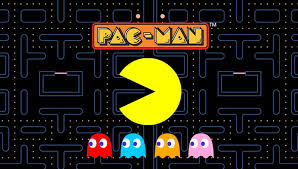Introduction to PacMan’s Legacy
The PacMan 30th anniversary marks a significant milestone in the history of video gaming, celebrating the enduring popularity of a game that revolutionized the gaming world. Since its inception in 1980, PacMan has become more than just a game; it’s a cultural icon. This article explores the journey of PacMan, from its humble beginnings to becoming a global phenomenon, and how it continues to captivate audiences even after three decades.
The Birth and Rise of PacMan
PacMan was developed and released by Namco in 1980 and quickly became a staple in arcade gaming. Created by Toru Iwatani, the game’s innovative design, simple yet challenging gameplay, and charismatic main character set it apart from other games of its time. PacMan’s objective is straightforward: navigate through a maze, eating dots and avoiding ghosts. This simplicity, combined with its increasing difficulty as the game progresses, made PacMan a hit among a wide range of audiences.
The game’s success can be attributed to its universal appeal. Unlike many contemporary video games that were focused on space themes and warfare, PacMan was designed to be non-violent and enjoyable for all ages. Its vibrant colors, distinctive sound effects, and engaging gameplay resonated with players, making it one of the most popular arcade games of all time.
PacMan’s Impact on Pop Culture
PacMan’s influence extended beyond the realm of video gaming into broader pop culture. The character became an icon, spawning a wide range of merchandise, television shows, and even music. The famous “PacMan Fever” song is a testament to the game’s massive impact during the 1980s.
The game also pioneered many aspects of modern video gaming, including cutscenes and power-ups, influencing the design and mechanics of future games. Its cultural significance is reflected in its appearances in various media, including movies, TV shows, and art exhibitions, underscoring its status as a symbol of retro gaming culture.
Celebrating the 30th Anniversary
The 30th anniversary of PacMan in 2010 was celebrated worldwide, showcasing the game’s lasting appeal. Google commemorated the occasion with a unique interactive PacMan Doodle, allowing millions to play the game directly from the search engine’s homepage. This move not only celebrated the game’s anniversary but also introduced PacMan to a new generation of gamers.
Additionally, various events and merchandise releases were organized to mark this milestone. From special edition games to exhibitions and retrospectives, the gaming community celebrated the legacy and impact of PacMan. These celebrations highlighted the game’s journey from a simple arcade game to a cultural phenomenon.
The Evolution of PacMan
Over the years, PacMan has evolved while maintaining its core gameplay. Various versions and spin-offs have been developed, including Ms. PacMan, PacMan Championship Edition, and PacMan Battle Royale. These games introduced new elements and challenges, keeping the franchise fresh and relevant.
The evolution of PacMan also saw its transition from arcade cabinets to home consoles and mobile platforms, making it accessible to a wider audience. The game’s design has been adapted to suit different platforms and technologies, including VR and augmented reality, demonstrating its versatility and enduring appeal.
The Legacy and Future of PacMan
PacMan’s 30th anniversary not only celebrated its past successes but also looked forward to its future in the gaming industry. The game’s enduring popularity is a testament to its timeless design and universal appeal. It remains a beloved classic, continuing to inspire and entertain players of all ages.
As the gaming industry evolves, PacMan’s simplicity and charm continue to stand out. Its legacy is a reminder of the power of innovative game design and its ability to transcend cultural and generational boundaries. The future of PacMan looks bright, with potential for further innovation and adaptation in an ever-changing digital landscape.
Conclusion
The PacMan 30th anniversary celebrates more than just a game; it commemorates a cultural icon that has left an indelible mark on the world of entertainment. From its origins in the arcades to its presence in modern digital platforms, PacMan continues to be a symbol of fun, innovation, and nostalgia. As we reflect on its 30 years of success, it’s clear that PacMan’s journey is far from over, with the little yellow character set to entertain and inspire for many years to come.


